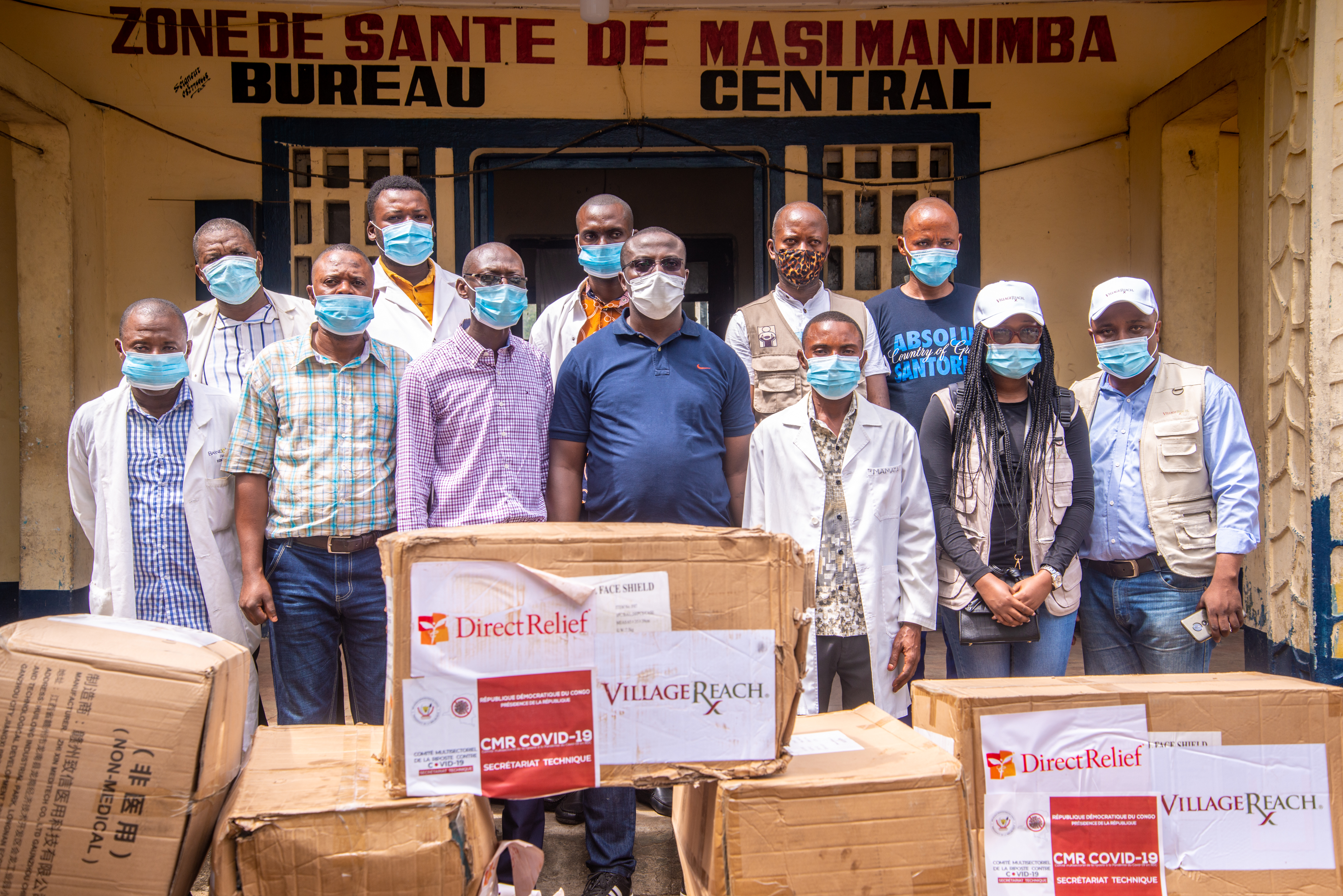Going the extra mile
A UNICEF and People that Deliver initiative supported projects in sub-Saharan Africa to tackle logistical challenges exacerbated by the COVID-19 pandemic
“This is the first time for us to receive PPE [protective personal equipment] in this health facility so we can protect ourselves and the patients,” explains Nelly Mukweta, a health worker in the Democratic Republic of the Congo.
The provision of PPE meant that health workers in the region could continue to safely go about their work, which includes vaccinating children against deadly diseases such as polio, measles and yellow fever.
“For us this really makes a difference because now when we go home we don’t have to worry: we know that the PPE is keeping our families safe too”, adds Nelly.
Ensuring that healthcare and other essential items reach the last-mile is a logistical challenge but Nelly, along with thousands of other supply chain workers in sub-Saharan Africa, has benefitted from the People that Deliver (PtD)’s Last Mile Health Supply Chain COVID-19 Support Program.
Following the onset of the COVID-19 outbreak, PtD, supported by the FIA Foundation, provided funding to four projects in sub-Saharan Africa that focussed on ensuring health commodities continue to reach patients throughout the COVID-19 pandemic.
Responding to surging health needs in a crisis
The PPE provided to Nelly and her colleagues was delivered by VillageReach, a non-governmental organisation (NGO) and one of the four winning entries. In addition to the provision of PPE to community health workers, VillageReach provided the logistics workforce with the information and training needed to respond to additional demands put on the supply chain during the pandemic.
Another winning NGO, Transaid, targeted driver safety. Through the Last Mile Health Supply Chain COVID-19 Support Program, Transaid collaborated with the Industrial Training Centre and the Ministry of Health in Zambia to develop training content to arm drivers with the knowledge to protect themselves from COVID-19. GreenLight Initiative – an NGO based in Nigeria – also offered training to truck drivers transporting medical supplies and ambulance drivers transferring COVID-19 patients.
According to Simon Patrick Obi, Executive Director of the GreenLight Initiative, “Over 360 drivers have been trained in 36 states of Nigeria’s regions. This has not only strengthened the health supply chain and ensured vital health products are delivered in a safe, secure and timely manner, but also this knowledge about how to stay safe during the pandemic has filtered down to families and communities.”
Stay at home was the advice in many countries and SafeBoda, an organisation operating in Kenya and Uganda, made it easier to do just this. Over the duration of the project SafeBoda trained 5 000 drivers in safe delivery methods, allowing thousands of customers to stay at home to prevent the spread of COVID-19 and still access quality healthcare products.
Supply chain: the key to health commodity access
Throughout the COVID-19 pandemic the organisations involved in the Last Mile Health Supply Chain COVID-19 Support Program have been providing supply chains with invaluable support to aid the provision of essential health products and services.
The pandemic has further highlighted the need for well-functioning supply chains and these projects are just four of many examples demonstrating the vital role of the supply chain workforce. And now, each of the four organisations is actively fundraising to be able to continue the initiatives.
The program also complemented UNICEF’s COVID-19 response efforts, which include providing communities with key messages on how to prevent the spread of COVID-19 and the forming of partnerships with local TV channels and radio stations to allow children to continue their education from home.
Hosted by UNICEF’s Supply Division, PtD works with its coalition members and partners to create a competent, supported and adequately staffed supply chain workforce that spans the public and private sectors within the health system.

